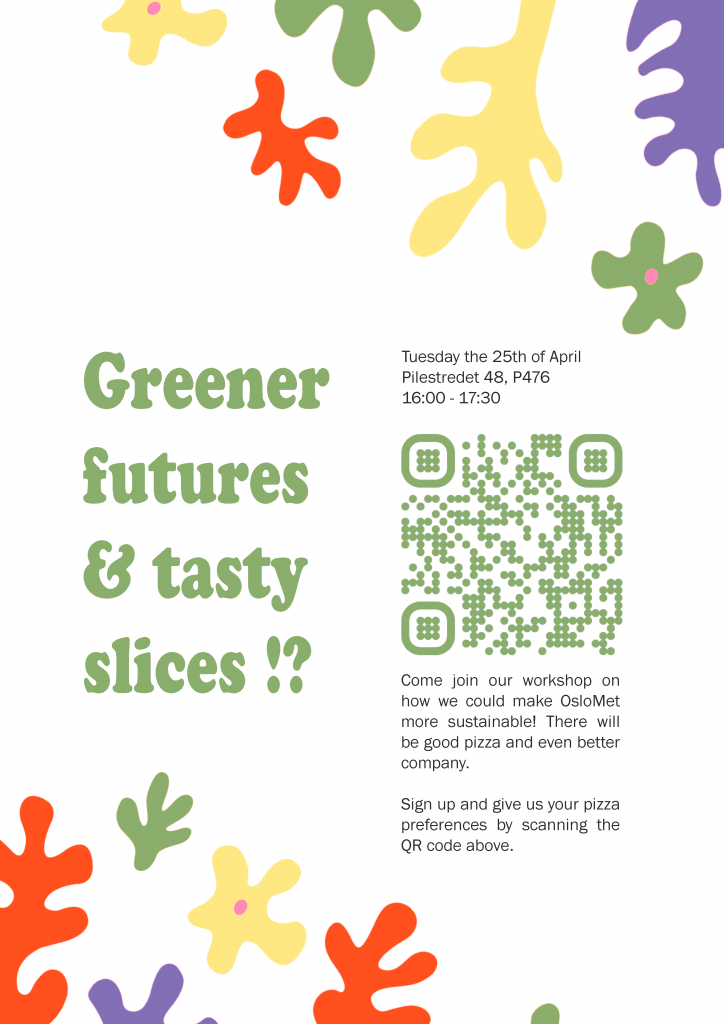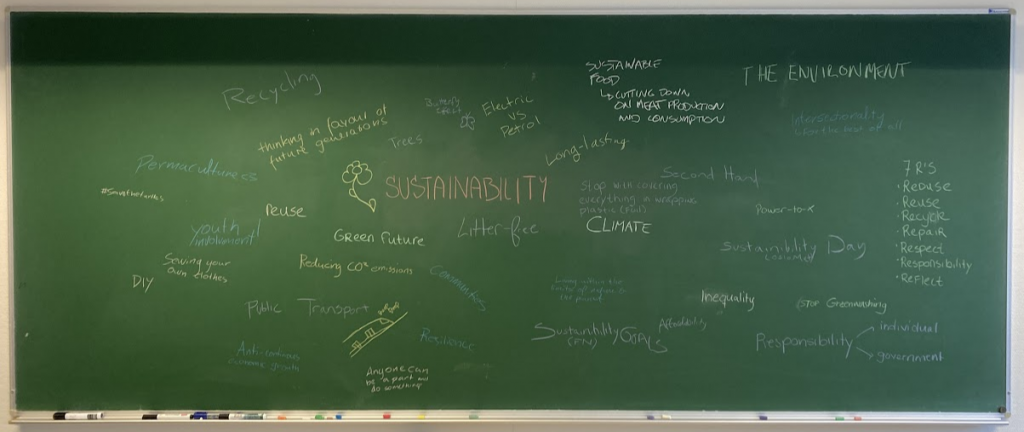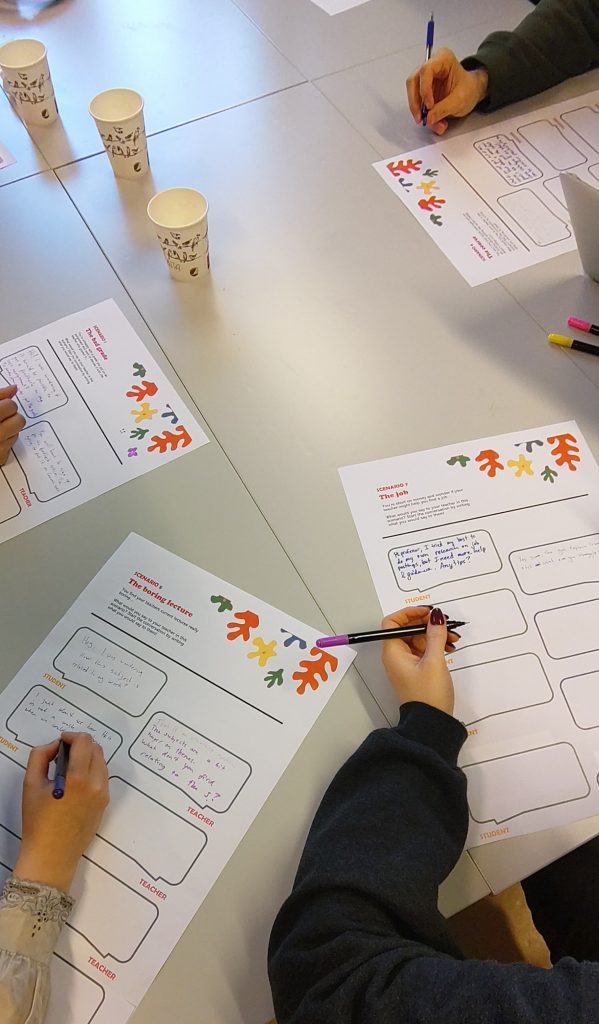
Sustainability workshop
This workshop was intended for OsloMet’s students and presented the participants with three different exercises, all focusing on sustainability. The aim of the workshop was not only to generate relevant data about OsloMet’s students’ perspectives on sustainability, but to test how the participants engaged with the presented methodology. This workshop generated relevant data about sustainability, while also providing a joyful atmosphere for the participants.
On the 25th of April, 2022, the student assistants tested for the first time the workshop they had designed. Eight students from different study programmes attended the event, which took place at Pilestredet 48. All the participants sign a consent form that gives us consent to analyze the collected data and inform them about what the workshop is for and which kind of research they are taking part in.
Workshop:

Mind mapping activity:
The workshop started with the Chalkboard exercise on Sustainability thought; this activity helped participants to enter the topic of sustainability. Their attitude towards the activity changed while they were filling in the blackboard, thus, their engagement progressively arose with the exercise. The participants answered in a variety of ways, giving an overall image of what sustainability looks like, pointing out factors such as: recycling, environment, green future, reducing CO2, second-hand, inequality, etc.
Post-it notes activity:
As this activity was further narrowed down to particular questions, participants got more focused and started getting engaged in writing and posting relevant solutions or ideas. Hence, one of the student assistants functioned as the moderator while also being involved in the activity, which happened to boost the other participants, building an informal and comfortable atmosphere. Participants were independent enough to contribute to broader direct questions on how sustainability is being practiced at OsloMet.


Role play activity:
The atmosphere of this activity was fresh and fun, and participants enjoyed answering the conversation. This excitement created through humor and lightheartedness gave them the creativity and will to keep writing.
Some participants experienced a shortage of time during the task, however, this issue was solved as fast as it was addressed to the student assistants. Participants got confused with some of the proposed scenarios, wondering whether the exercise was related to general sustainability practice or not. Nevertheless, they put themselves into the scenarios and engaged with the task. Even if they did not understand the benefit of what they were doing, the outcome of the task was rich.
“Every institution that has the opportunity to make a change, has the responsibility to make it.”
Student
“The university is not responsible for making our daily life more sustainable.”
Student“The teachers can not change the school system.”
Student
Outcomes:
This workshop testing gives the student assistant a real perspective of how their methodology works. Thus, they reflect on which activity and decisions were beneficial for further pursuit and assess where there is room for improvement. In addition, the tasks from the workshop also generated relevant data for the aim of the research, since we collected OsloMet’s students’ perspectives on sustainability.
Feedback on the workshop methodology
Overall the participants show a positive engagement during the workshop. The different physical placements around the room varied from task to task and the different writing platforms gamified the experience, making it more laid-back and informal. Hence, participants were glad to have the freedom to answer the questions they wanted in the way they wanted to do it.
On the other hand, participants miss an icebreaker dynamic at the beginning of the workshop. This kind of dynamic helps participants to get to know each other and feel comfortable during the session. Moreover, participants find some of the questions to be too broad and unspecific, even so, the research is interesting to analyze which direction their answers take to an open question.
Furthermore, participants highlight the absence of discussions after each task, the lack of discussions provides us with a real mapping of where the students stand right now, and their starting point on sustainability, however, discussions would have generated innovative and more elaborate ideas, as assistants experienced at the feedback discussion.
In any regard, in this workshop student assistants experienced for the first time how to facilitate an activity for other students. Students experienced that their roles as hosts and moderators were somehow unclear, which created certain issues in the communication and flow of the workshop. Therefore, the student assistants will define their roles and personal tasks better next time, focusing on the following roles: Host in charge of talking, Moderator in charge of tasks and discussions, Observer(s) in charge of note-taking, Technician who makes sure everything works and fixes stuff that does not.
